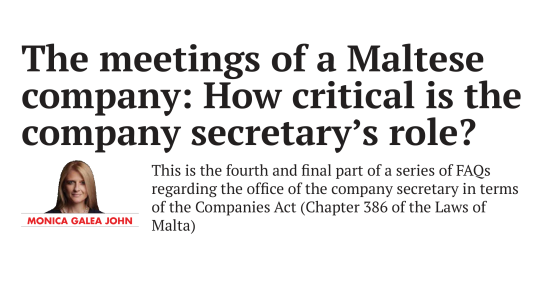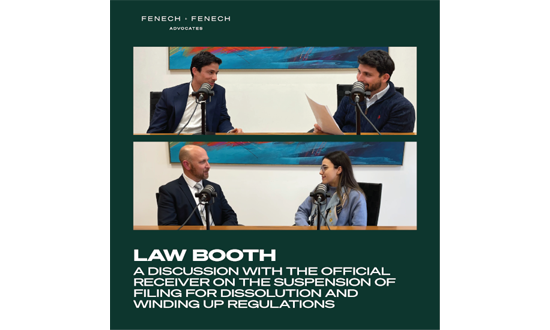
These FAQs consider the procedure and requirements in terms of Maltese company law concerning the pledging of shares in a company incorporated under the Companies Act (Chapter 386 of the Laws of Malta).
What is a pledge?
Pledge is a contract by and between (i) a debtor (or a third party for the debtor), known as the pledgor, and (ii) a creditor, known as the pledgee, which is created as security in favour of the pledgee for an obligation of the pledgor.
A pledge may be taken over things that are movable by nature and movable by operation of law (such as shares), as well as debts and other rights relating to movables, and it grants the creditor the right to obtain payment out of the thing pledged with privilege over other creditors.
How is a pledge of shares regulated under Maltese law?
While the general elements of the notion of pledge emanate from the provisions of the Civil Code (Chapter 16 of the Laws of Malta), the regulation of the pledging of shares is largely based on the provisions of the Companies Act, as supplemented, in certain specified circumstances, by the provisions of the Financial Collateral Arrangements Regulations 2004.
Can shares in a Maltese company always be pledged?
A distinction must be drawn between public and private companies.
The Companies Act specifically provides that securities (such as shares) may, unless otherwise provided in the Memorandum & Articles of Association (the “M&As”) or under the condition of issue of the securities, be pledged by their holder, provided however, that in the case of a private company, securities may not be pledged unless the M&As specifically so provide.
Therefore, there is the automatic presumption that shares in a public company may be pledged, while shares in a private company may not be pledged – in each case, unless the Memorandum or Articles of Association expressly state otherwise.
The implication of this is that upon a proposed pledge of shares, a private company would need to procure an amendment to its M&As if no provision as to a pledge over shares exists, whereas no such requirement to amend the M&As applies to a public company (unless the latter’s M&As expressly disallow a pledge of shares, which, in practice, is very rare). In such instances, it is relevant to note that before a pledge of shares can be registered with the Malta Business Registry (the “MBR”), the latter would first need to receive the amended M&As, which must be submitted to the MBR within 14 days of the extraordinary resolution approving the changes thereto.
How is a pledge of shares constituted?
A pledge of shares is constituted by virtue of a private agreement in writing entered into by and between the pledgor and pledgee, regulating the pledge of shares by the pledgor in favour of the pledgee.
The pledge agreement is typically also entered into by the company whose securities are being pledged, and this in view of the requirement emanating from the Companies Act that the company must be notified in writing of the pledge.
In addition, the company must record the existence of the pledge in its register of members, and within 14 days of the effective date of the pledge, notice of the pledge is to be submitted to the MBR by the pledgor or the pledgee, by virtue of a statutory Form T(2).
When does a pledge of shares become effective?
A pledge of shares becomes effective between the parties upon the entry into the pledge agreement by and between the pledgor and the pledgee (and the company, as applicable), subject to the completion of all conditions precedent as would be further stipulated in the pledge agreement.
In relation to third parties, however, a pledge of shares only becomes effective upon the registration of the relevant statutory notice on the online portal of the MBR. The only exception is with respect to shares that are listed on, or maintained in a register held by, a Maltese regulated market, in which case a pledge of shares in any such company shall become effective in relation to third parties from the date of delivery of the signed pledge agreement to the Maltese regulated market.
Can shares subject to a pledge be transferred or otherwise assigned?
A distinction is once again drawn between shares that are listed on, or maintained in a register held by, a Maltese regulated market, and shares that are not so listed or maintained.
In the former case, a transfer or assignment of pledged shares is always null and void. On the other hand, a transfer or other assignment of pledged shares the latter of which are not listed on a Maltese regulated market, is possible provided any such transfer or assignment is made with the consent of the pledgee and the shares transferred remain subject to the pledge.
How can a pledge of shares be terminated?
This requires the termination of the existing pledge agreement by virtue of a further private agreement, to be entered into by and between the pledgor and pledgee (and typically also the company whose securities have been pledged) regulating the termination of the pledge of shares by the pledgor in favour of the pledgee.
As with a pledge of shares, the company must furthermore record the termination of the pledge in its register of members, and within 14 days of the effective date of the termination, notice of such termination is to be submitted by the pledgee to the MBR, by virtue of a statutory Form T(3).
For assistance in connection with security by pledge of shares, please contact Dr. Sarah Grima on sarah.grima@fenechlaw.com
©Fenech & Fenech Advocates
Disclaimer │ The information provided on this Update does not, and is not intended to, constitute legal advice. All information, content, and materials available are for general informational purposes only. This Update may not constitute the most up-to-date legal or other information and you are advised to seek updated advice.















